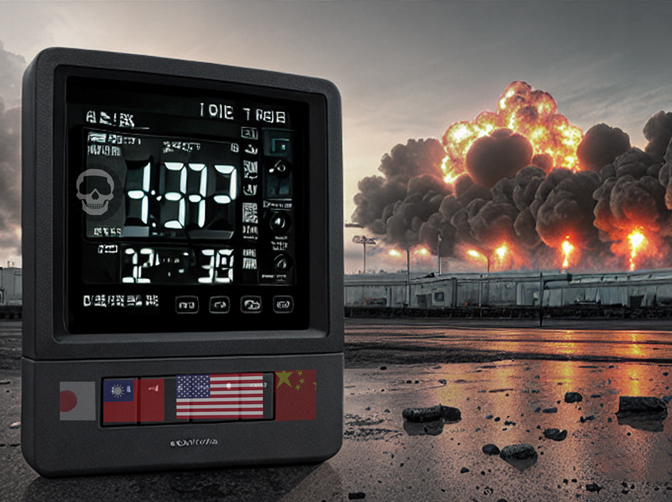
“Do not mess with Taiwan before 2028,” Vivek Ramaswamy instructed translators to tell Chinese ruler Xi Jinping, “before the end of my first term, okay?”
Responding to a question from Hugh Hewitt on his radio program, Ramaswamy — the entrepreneur, author, and GOP presidential candidate — urged a “move from strategic ambiguity to strategic clarity.”
The right idea, I guess, just not elaborated in the clear-thinking manner I have been hoping for.
You see, there was a “second part” to Ramaswamy’s foreign policy prescription. “That commitment is only as far as 2028,” he explained, “by which point I will have led the United States of America to achieve semiconductor independence, and we will not take the risk of war that risks Americans lives after that for some nationalistic dispute between China and Taiwan.”
“Some nationalistic dispute”?* Sure, between the democratic miracle of the last century and a genocidal totalitarian regime that claims it . . . along with claiming 90 percent of the South China Sea, the world’s busiest waterway.
A skeptical Hewitt heard Ramaswamy “saying ‘I will go to war, including attacking the Chinese mainland, if you attack before semiconductor independence. And afterwards, you can have Taiwan. So if you just wait until 2029, you may have Taiwan.’”
Let’s make the world safe for semiconductors!
But . . . not for people?
Ramaswamy’s transactional approach might make the Taiwanese feel less inclined to assist our efforts toward semiconductor independence. And what a terrible message to send other allies in the region!
As the democratic countries of Asia and the world are stepping up and coming together to push back against Beijing’s belligerence, the U.S. ought not jeopardize this by suggesting more convenient dates for calendaring in future Chinazi invasions.
* From the interview, Ramaswamy appears ignorant of Taiwanese history; namely, the fact that the Nationalist Chinese forces that fled to the island in 1949, as well as their offspring, comprise a distinct minority of the island nation’s population. Meanwhile, the native Taiwanese had been under Japanese colonial rule for the previous fifty years and, prior to that, never completely under Chinese control.









